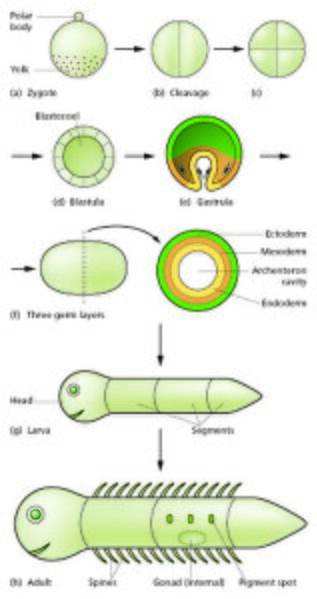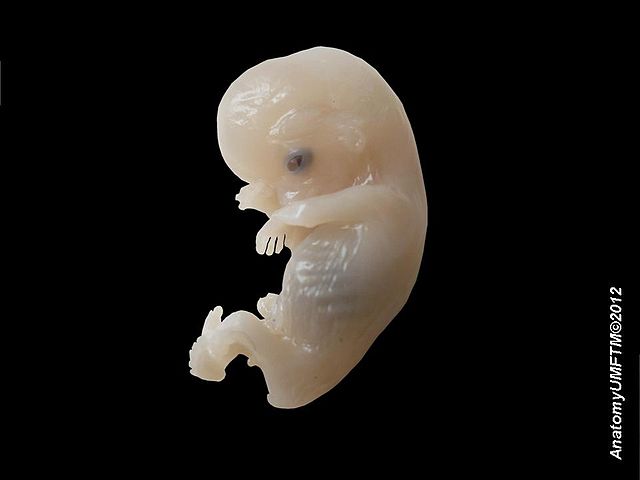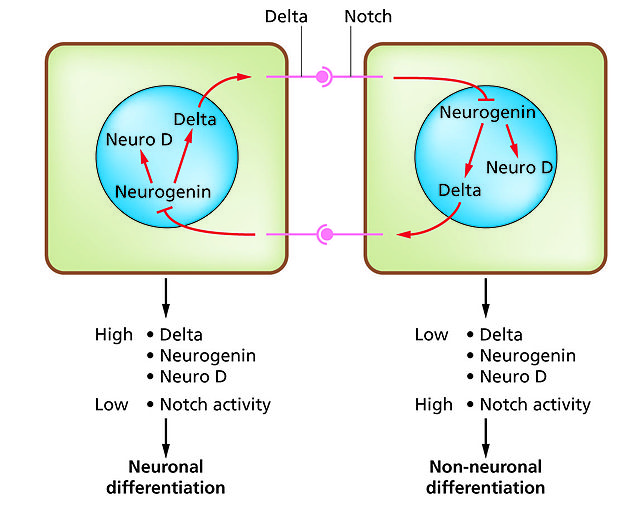Animal embryonic development
In developmental biology, animal embryonic development, also known as animal embryogenesis, is the developmental stage of an animal embryo. Embryonic development starts with the fertilization of an egg cell (ovum) by a sperm cell, (spermatozoon). Once fertilized, the ovum becomes a single diploid cell known as a zygote. The zygote undergoes mitotic divisions with no significant growth and cellular differentiation, leading to development of a multicellular embryo after passing through an organizational checkpoint during mid-embryogenesis. In mammals, the term refers chiefly to the early stages of prenatal development, whereas the terms fetus and fetal development describe later stages.
Diagram of stages of embryo development to a larval and adult stage.
Comparative vertebrate embryology.
Dissection of human embryo
Human embryo, 8-9 weeks, 38 mm (1.5 in)
Developmental biology is the study of the process by which animals and plants grow and develop. Developmental biology also encompasses the biology of regeneration, asexual reproduction, metamorphosis, and the growth and differentiation of stem cells in the adult organism.
The Notch-delta system in neurogenesis (Slack Essential Dev Biol Fig 14.12a)
Generalized scheme of embryonic development. Slack "Essential Developmental Biology". Fig. 2.8.





